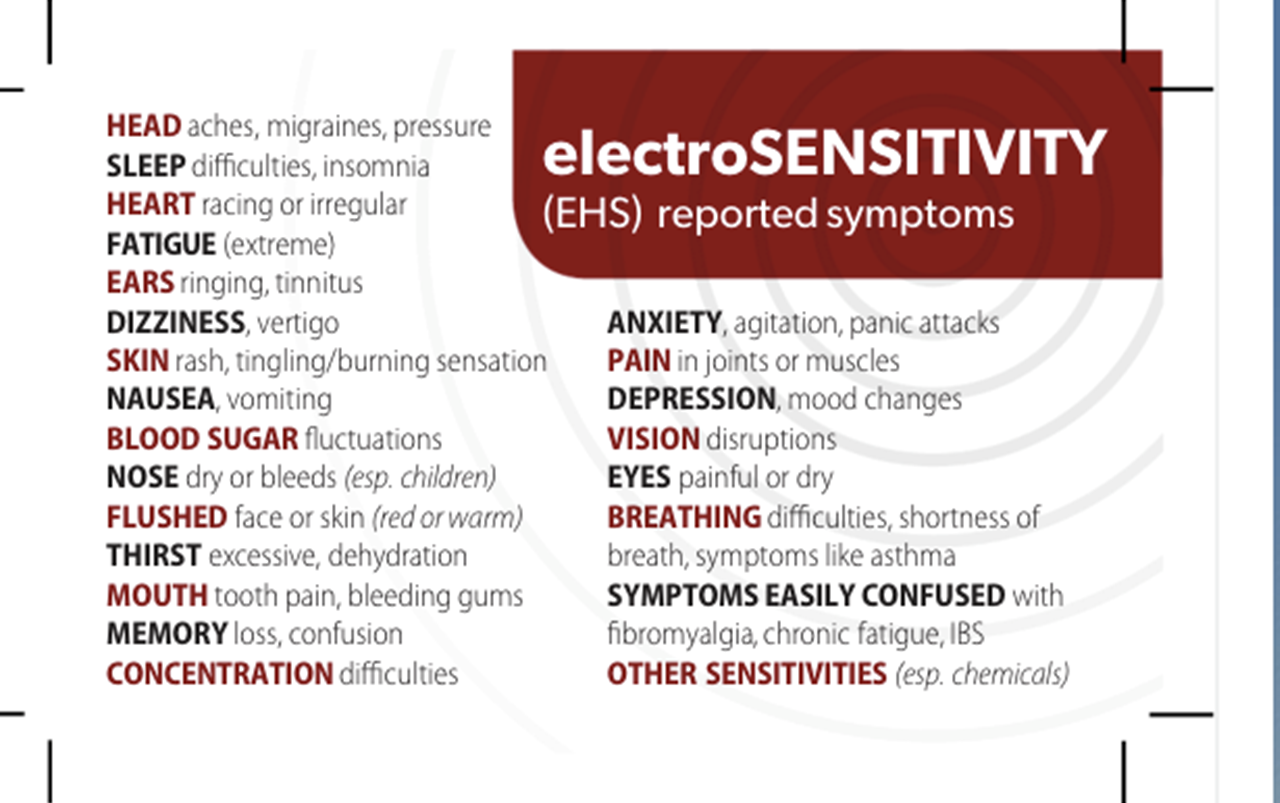Info about Electromagnetic Field Sensitivity

Electromagnetic field sensitivity (EMF sensitive) is a condition in which an individual has a high sensitization to electromagnetic fields around him. This condition is not limited to situations in which there is no electrical current, but can affect those who have an open circuit or who are in contact with electromagnetic field for extended periods of time. emf sensitivity symptoms has a comprehensive understanding of the causes of EMF sensitivity, and can help patients treat the symptoms. The center has the ability to perform tests to determine if someone is vulnerable to EMF exposure. This can be done with new technology that can measure heart rate variability.
IEI- Get more information is a symptom of exposure to electromagnetic fields
Electromagnetic pollution and its generated electromagnetic fields are a factor in the onset of a number of ailments. The signs and symptoms can be difficult to recognize as some have reported a range of symptoms. They could be the result of pre-existing health conditions or a response to stress due to the possibility of exposure to high levels in electromagnetic field. Whatever the reason, the symptoms can be very debilitating to those who suffer from them. However the scientific community is yet to determine how widespread the IEI-EMF sensitivity syndrome is and how widespread it is.
It is not a symptom of electrohypersensitivity
While the symptoms of electrohypersensitivity and EMF sensitivity are similar, there are some key differences. Electromagnetic hypersensitivity is frequently misunderstood, and symptoms can vary widely. It is essential to obtain a proper diagnosis to understand the underlying causes and potential treatments.
It isn't a symptom of EHS
While EMF sensitivities are not a defining sign of EHS, it is often associated with the disorder. Some studies have suggested that the condition may be related to environmental factors and genetics instead of a specific physical condition. However the need for more research to draw definitive conclusions.
It can be confusing
The signs of EMF sensitivities can be confusing. Most EHS sufferers don't think their symptoms stem from a specific source. https://putnam-reyes.thoughtlanes.net/info-about-electromagnetic-field-sensitivity-1680319665 seek medical attention, but are unable to get a definitive diagnosis. It is possible that they may have any mental disorder of some kind, and leads to an increasing feeling of despair and anxiety.
It can be scary
EMFs, also known as electromagnetic fields or EMFs are often frightening. Some people report experiencing unpleasant symptoms after exposure to these fields, which originate from devices like Wi-Fi routers and mobile phones. The symptoms may vary in severity, however in the most severe cases, people are forced to stay away from the use of fluorescent lighting and electronic devices. In extreme cases, sufferers might even be forced to leave the world of modernity and be isolated in communities referred to as "EMF-free areas".
It may aid in melatonin production
A single of the significant hormones in the body Melatonin is a hormone that is produced in the pineal gland. It plays a role in a variety of biological functions, such as the regulation of circadian rhythm. However, its use as a protection factor against non-ionizing electromagnetic fields has been in doubt, largely due to inconsistency in results from different studies. Our understanding of this hormone's protective mechanisms is largely based upon our knowledge of the mechanism through which it protects the body against the oxidative stress caused by exposure to RF/ELF.
It can aid with changes to the autonomic nervous systems.
Several studies show that EMF sensitivities can impact the autonomic nervous system. People suffering from the condition may be affected by altered autonomic reactions and may experience digestive issues. Some patients have problems digesting food correctly or be ill when they eat a smaller portion. Some may notice changes in body temperature or suffer from heat intolerance. These conditions are usually due to other health issues, such as diabetes.

